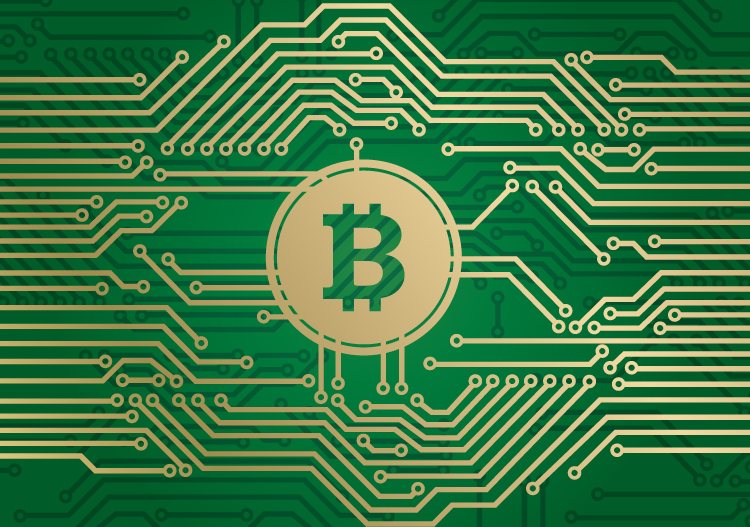Originally published on Forbes.com
If one could combine in a financial asset four key attributes: the anonymity of cash, a guaranty of trustworthiness, the convenience and scalability of digital transfer, and a reliable store of value, you would have an extraordinary product. It would be ideal for champions of individual liberty and anathema to governments seeking to tax and regulate them.
That is the promise of bitcoin.
It has succeeded in assuring anonymity and in enabling strangers to transact without the need for a third party like an Amex, Visa, MasterCard, or a bank to vouchsafe trustworthiness. So far it is at best adequate on scalability and convenience (the system can handle only 7 transactions a second and takes 10 minutes to confirm transactions, though it appears these constraints are solvable. It requires all but the geekiest to use digital wallets which are far less secure than bitcoin itself). But where it arguably fails is as a reliable store of value.
Bitcoin has no inherent value whatsoever.
It is not accepted as legal tender by any government. It is not backed by any assets. It does not represent a claim on either tangible or intangible property. Like art, however, it does have the merit of scarcity. There are currently 13 million in existence. New bitcoins are currently being created at the rate of 8 percent or so annually, a rate which will decline over time, and there will never be more than 21 million outstanding. As long as people are willing to exchange dollars for works of art, an art market exists, and art becomes a store of value. Similarly, as long as people are willing to exchange dollars for bitcoin, it too becomes a store of value. But people were willing to exchange vast sums for tulip bulbs in Holland in the 17th century, for shares in the South Sea Company in Britain in the 18th century, and for the most dubious of dotcom stocks in 2000. Bubbles all.
So the question becomes: does the market for bitcoin represent a stable, long-term store of value? Those who think it’s a con would point to its extreme volatility. In the past 3 years, it has traded as low as $5, as high as $1200, and now changes hands at around $250. They would also cite its illiquidity: all the bitcoins in existence are valued around $3.2 billion. Apparent trading volume is $2 million per day, (approximately a quarter of the daily volume of the typical $3.2 billion company). Moreover, there is no regulation or other mechanism to prevent large holders from pre-arranging trades among themselves to give the illusion of liquidity.
Ownership appears to be more highly concentrated than is the typical stock of the same capitalization. A knowledgeable friend in the business (the former operator of a very profitable bitcoin exchange and one of the most successful bitcoin miners), has stated that more than 50% of bitcoins are held by no more than 20 individuals. They have every incentive to collude in a classic “pump and dump” operation—though of course there is no evidence they act in concert or even that they know the identity of the others. More people are accumulating some bitcoins to have as a small percentage of liquid funds, but not very large quantities.
Credit card companies charges fees around 2.5 percent for moving value from a customer to a merchant. Banks charge at least that much for international transfers. Block chain transaction charges are a small fraction—approximately one half of one percent and eventually should be much lower than that. Potentially, blockchain can also record and transfer ownership of physical assets like automobiles, real estate, and art and intangible assets such as patents and royalties. It can thus enable secured lending transactions between strangers.
Blockchain technology has already stimulated dozens of entrepreneurial ventures, mostly in the spheres of traditional banking and financial markets. Ripple is seeking to displace correspondent banking with an intra-bank payment network. The NYSE has invested in Coinbase, a trading platform. Goldman Sachs has a stake in Circle Internet Financial, a bitcoin startup. IBM is working on a digital payment system; Samsung on blockchain powered backbone for the Internet of Things.
But blockchain 2.0/3.0 promises to be much more than an efficient payment mechanism. It incorporates elements of computation, network design, cryptography, and artificial intelligence. A start up called Ethereum (founded by a 20-something hacker, Vitalik Buterin) is developing a universal platform and programming language: a fundamental encrypted ecosystem for all manner of distributed data processing, messaging, file serving, and reputation vouching applications. Blockchain is analogous to the early stages of the Web itself. Its future might be big and bright, foreseeable in some ways but not in detail, a decentralized new paradigm.
Bitcoin owners may be in for a bumpy ride to nowhere. But the cocktail of cryptography, web, peer to peer, and other ideas that support bitcoin will perhaps become the most disruptive technology in decades: a new kind of internet that can revolutionize the domains of money and government.
Perhaps there is little value in the currency, but plenty of potential in the underlying technology.
—Robert Rosenkranz





